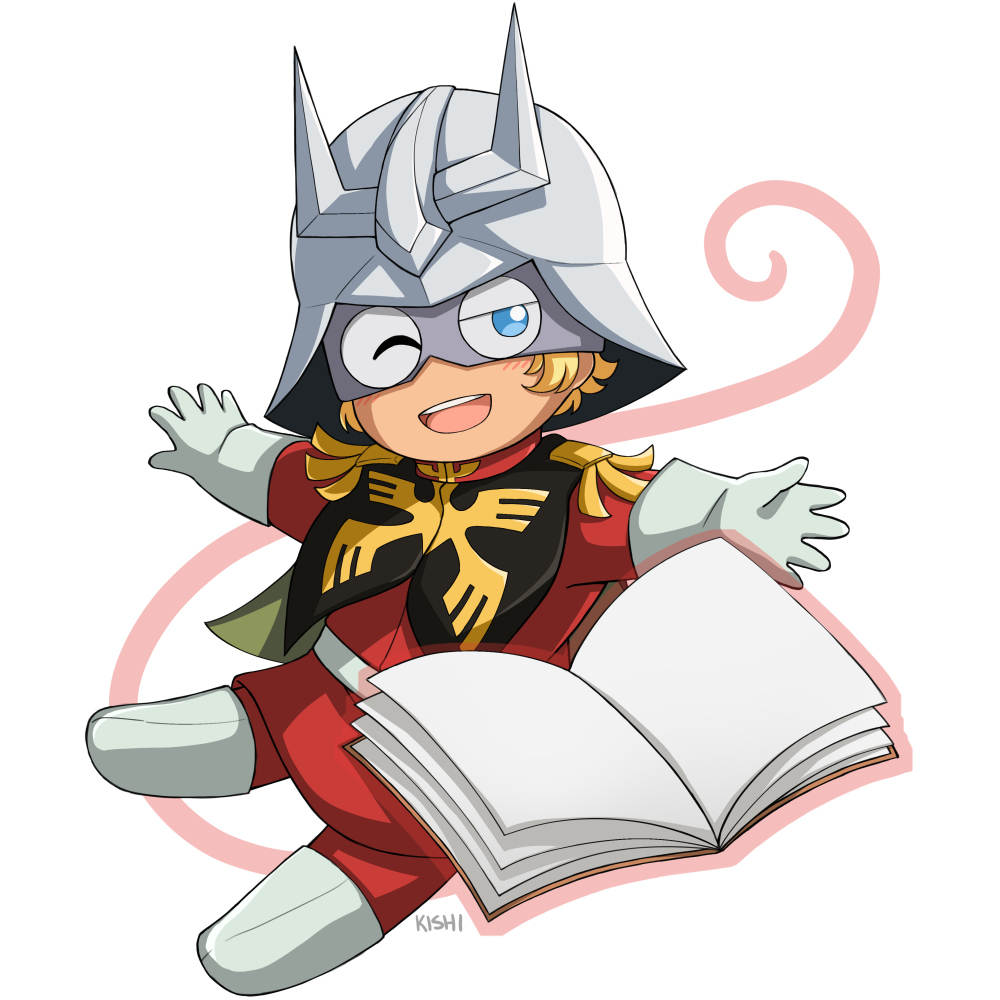(All analysis in this chapter of Char’s character and events in the show is Ikeda’s, not my own.)
Ikeda begins this chapter by talking about his experiences with Yoshikazu Yasuhiko, character designer and animation director for Mobile Suit Gundam. As discussed last time, it was Yas’s art that inspired Ikeda to try out for the role of Char in the first place. Whenever he plays Char, he keeps that original inspiration in mind.
The two first met in person backstage at an award ceremony in 1980. Ikeda was struck by what a kind gentleman Yas was, and to paraphrase, was shocked that such an ordinary person could draw such amazing pictures.
Ikeda briefly mentions that he enjoys Yas’s Gundam: The Origin manga, especially the scenes from Char’s backstory. Looking at the scenes from the military academy and where Char meets Lalah for the first time, Ikeda comments, “If I were a little younger, I’d like to try these lines.”
Next, Ikeda discusses how Char disappears from episode 12 – 26 of the anime, and the possibility that Director Yoshiyuki Tomino considered killing the character off around that time, a rumor he apparently heard from a staff member. The issue was Tomino trying to figure out what Char’s motivation would be going forward, beyond just his personal goal of revenge against the Zabi family.
When Char reappears in episode 26, he admits that the Gundam is an opponent he wants to defeat with his own hands and that such a thing is childish. Of course, we later learn there’s more to it than that.
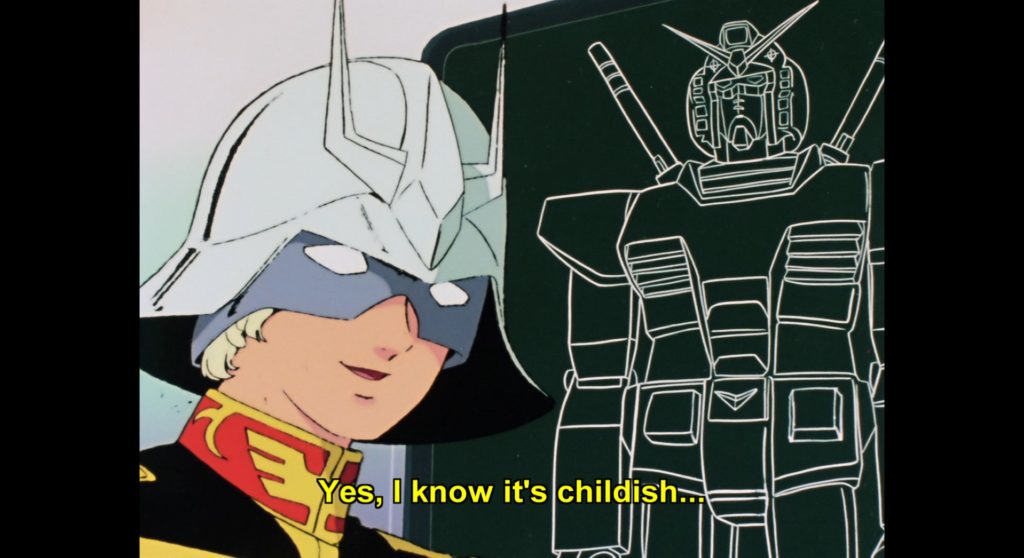
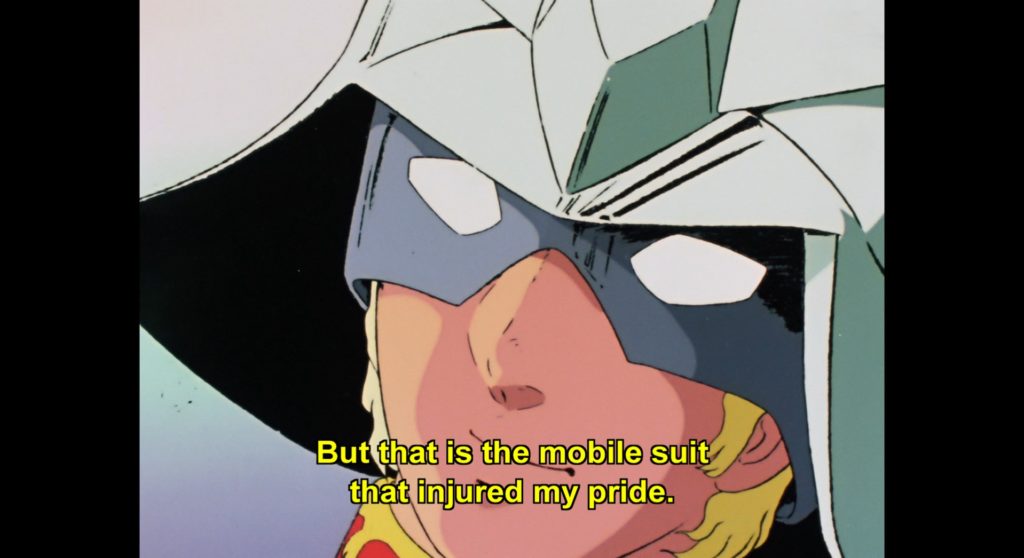
According to Ikeda, in order to bring Char back to the center of the story, Director Tomino invented the concept of “Newtype”. This would act as a new motivation for him to go into battle that had not previously been apparent to him.
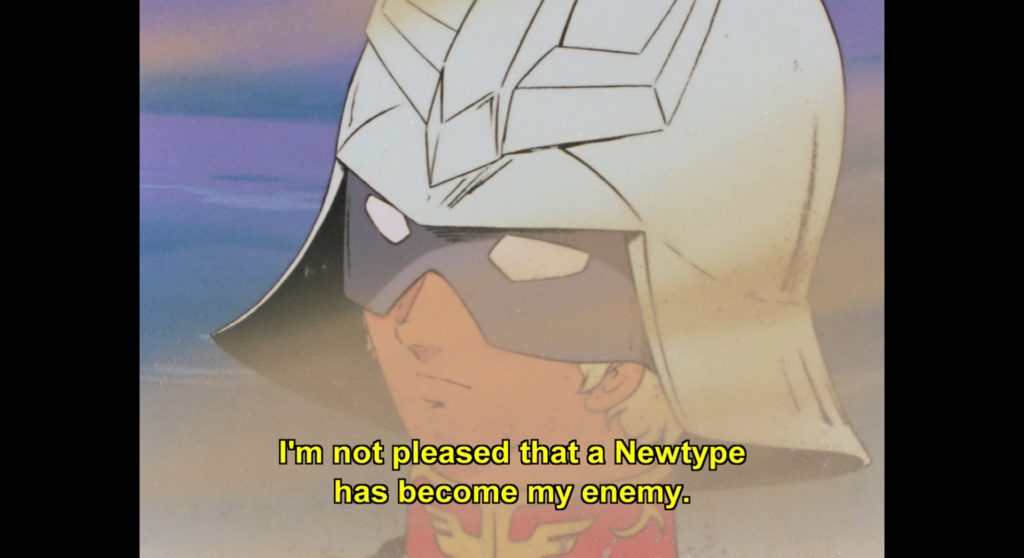
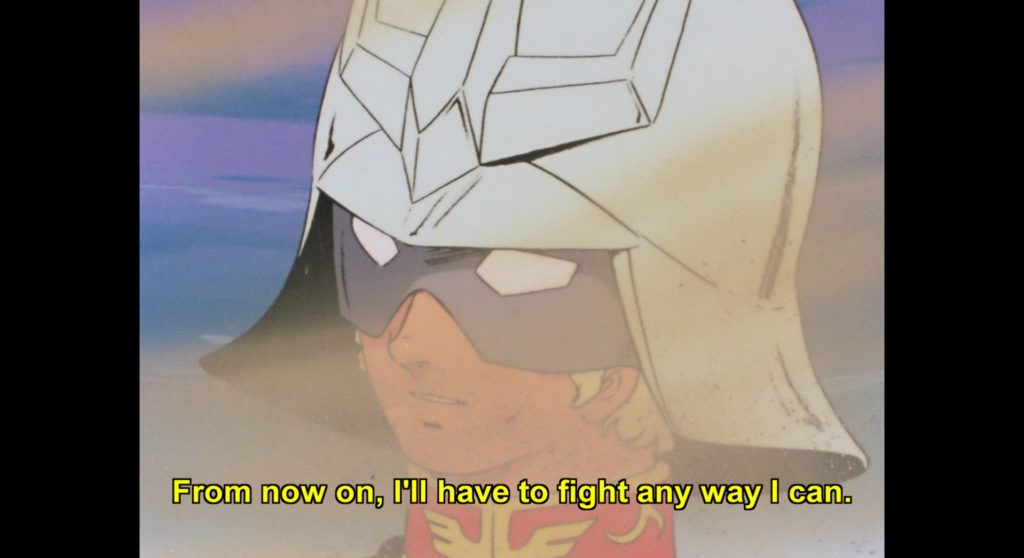
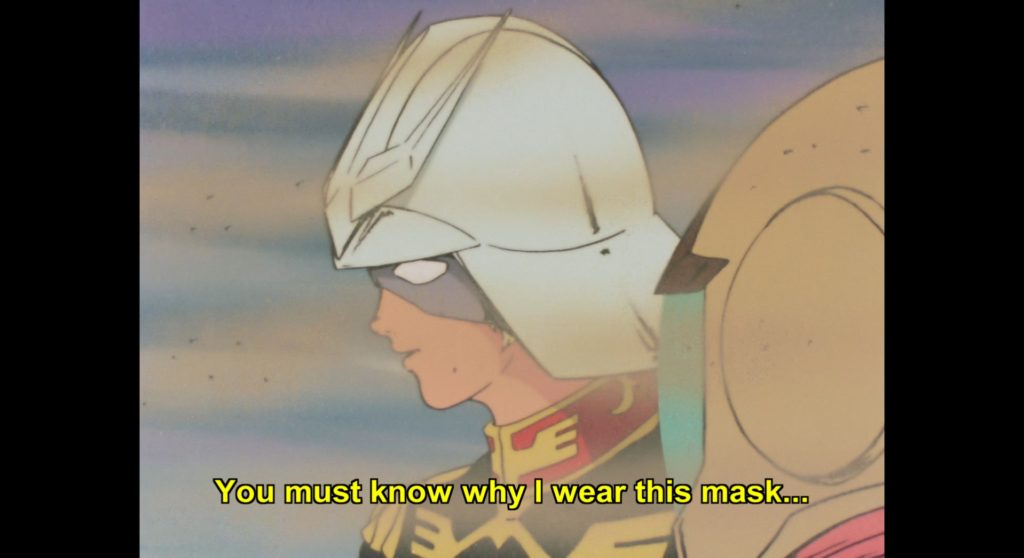
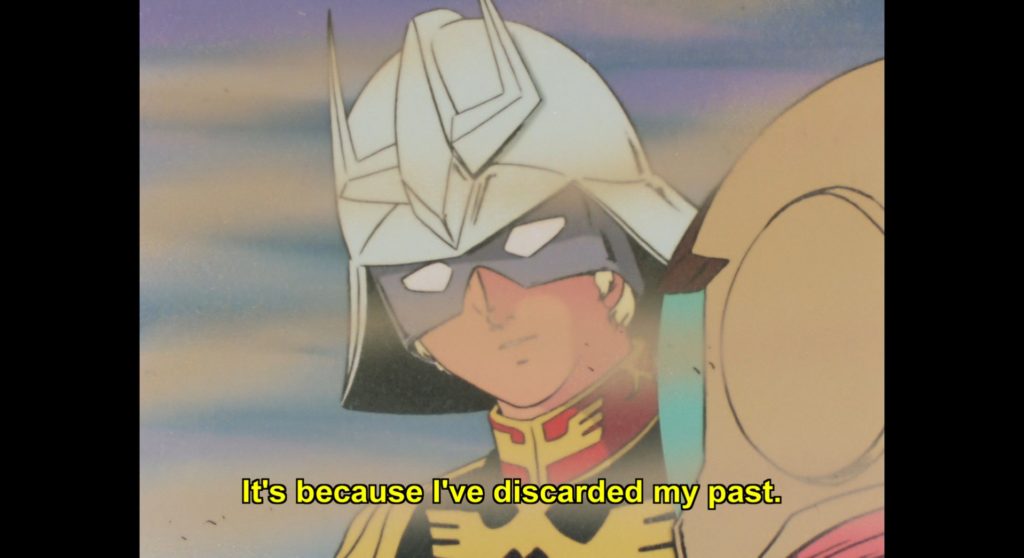
It is with the emergence of Newtypes such as Lalah and Amuro that Char senses the arrival of a new era, and tries to remove Amuro as an obstacle, who is simply being used as a tool of war.
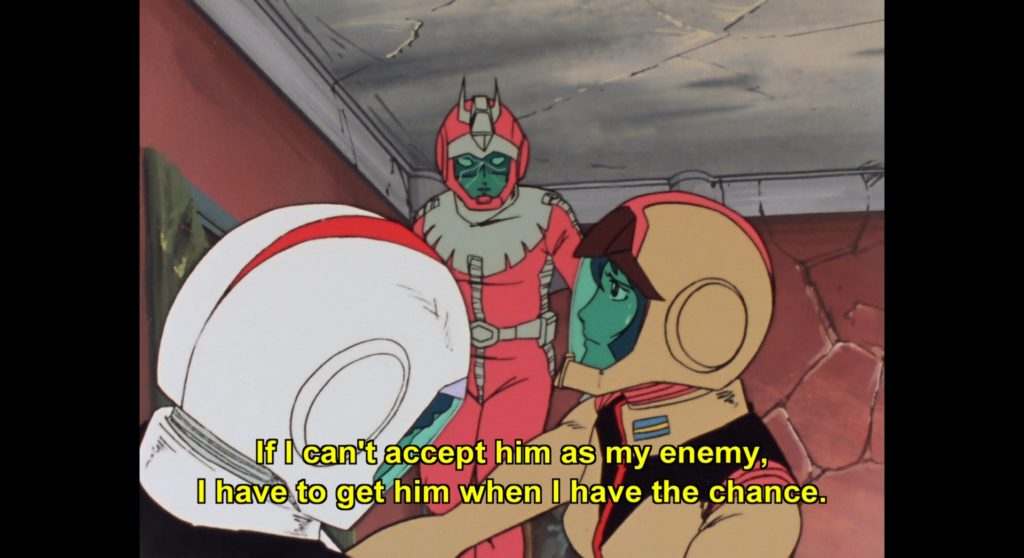
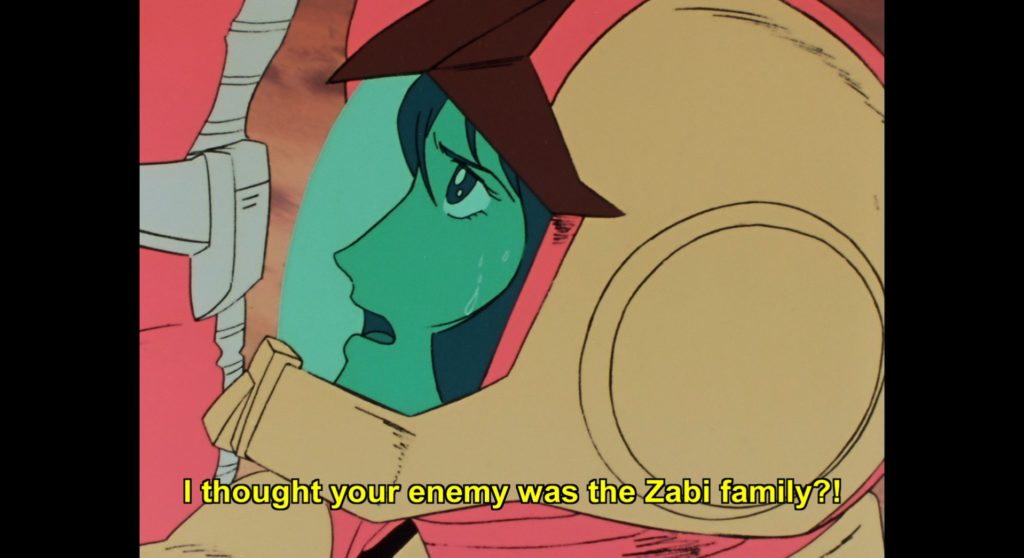
In Ikeda’s words, Char’s actions in the latter half of the story are symbolized by this phrase, “overthrowing the Zabi family is an afterthought.”
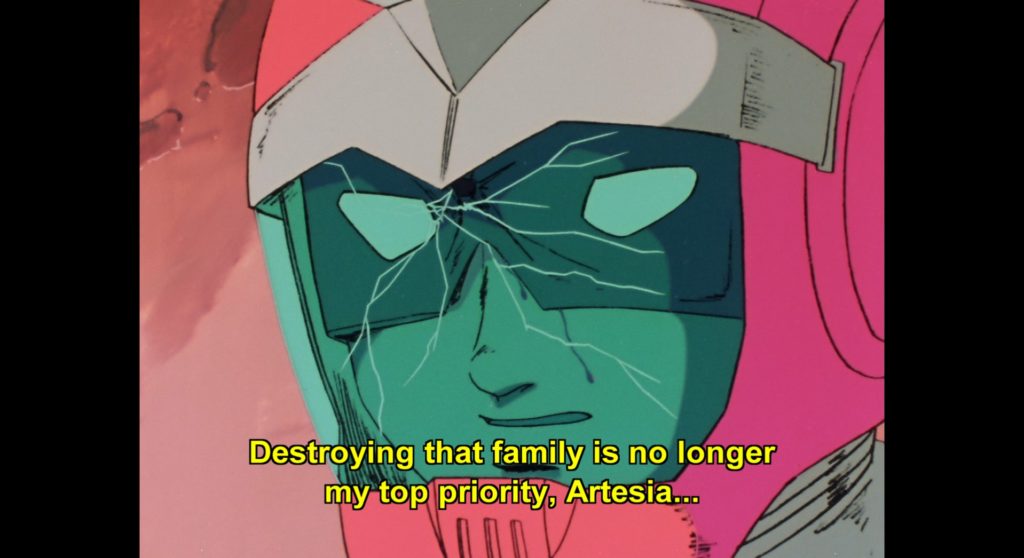
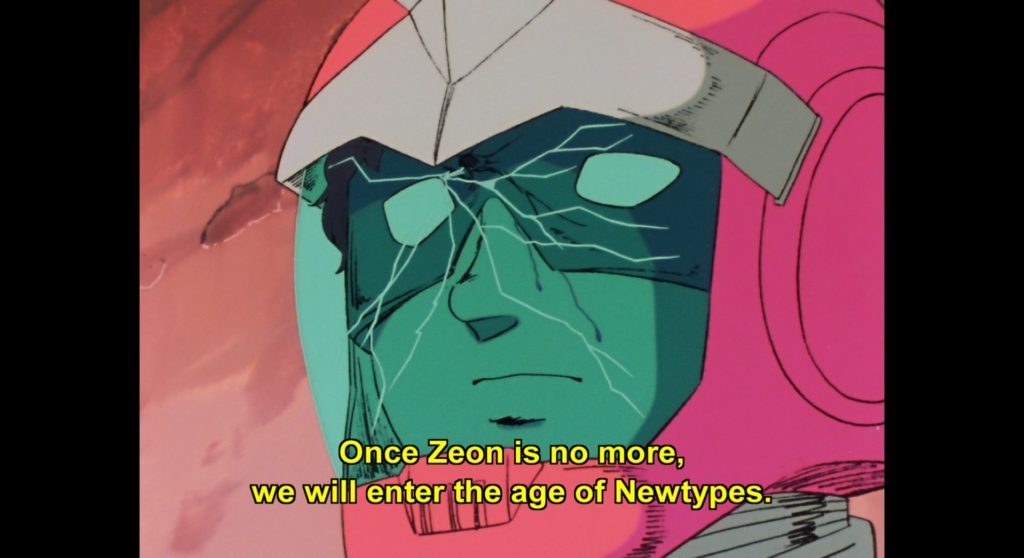
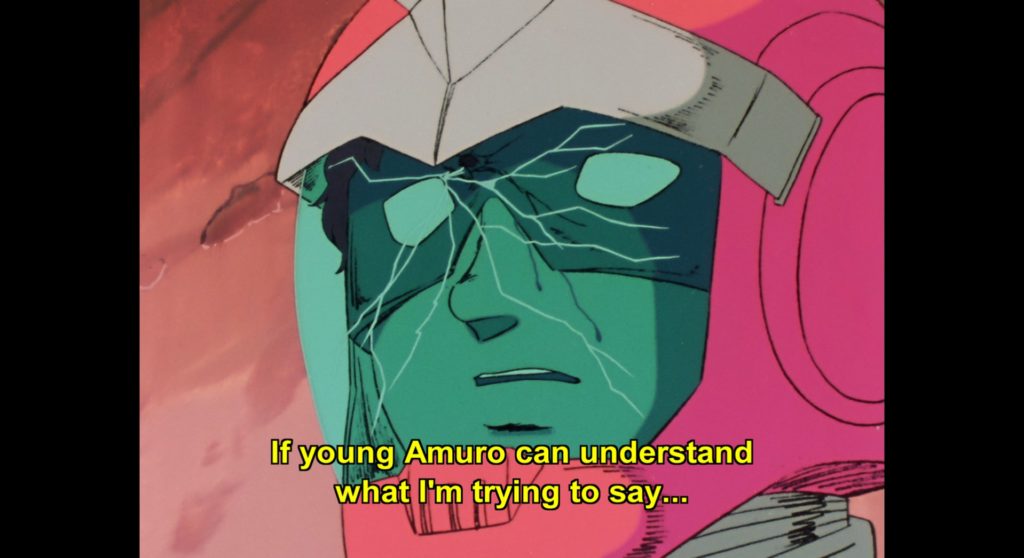
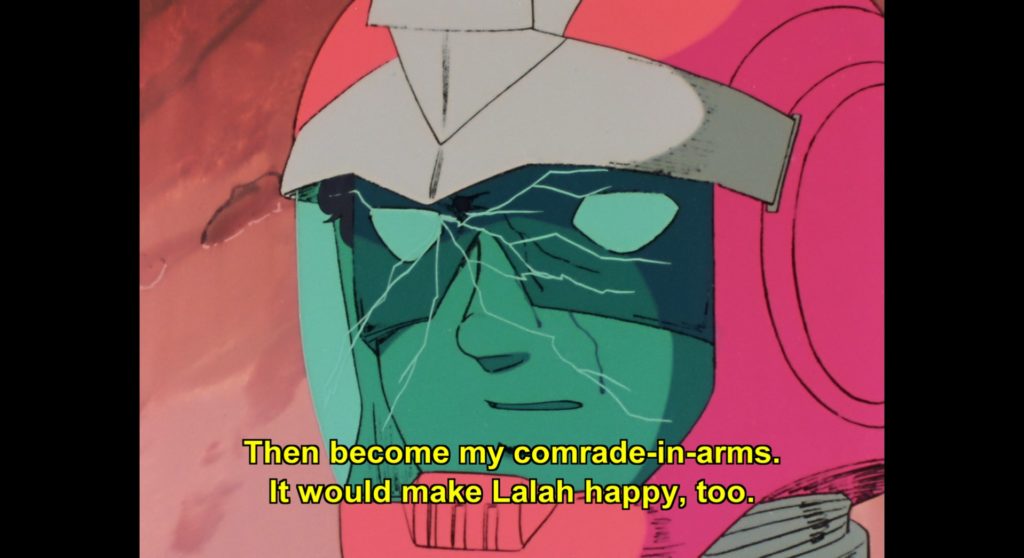
Of course this wasn’t an easy task to pull off, but by this point Char had grown to be an indispensable presence in the narrative and drama Director Tomino had been crafting.
Due to the show’s early cancellation, Tomino narrowed down the focus of the story to Amuro and Char, and Lalah and Sayla. Ikeda commends him for being able to wrap up the story in such a dramatic and satisfying way despite the circumstances.
Ikeda goes on to talk a little more about Tomino. One aspect he draws attention to is Tomino’s unique dialogue (as he calls it, “Tomino-bushi” [富野節]) and innovative camera work. He mentions Gackt likens it to song, with a musical touch.
As mentioned previously, Ikeda has the impression that Tomino allowed him some freedom in the direction he took Char, but believes that they both decided around episode 10.
Ikeda: This is also my imagination, but I think that in the episodes leading up to this point, Director Tomino was trying to figure out who he should project himself onto in his “Gundam” works. At the moment Char indirectly killed Garma, I think Director Tomino thought, “I’ve decided on this guy.” It seems that the appearance of Director Tomino himself is strongly reflected in Char Aznable.
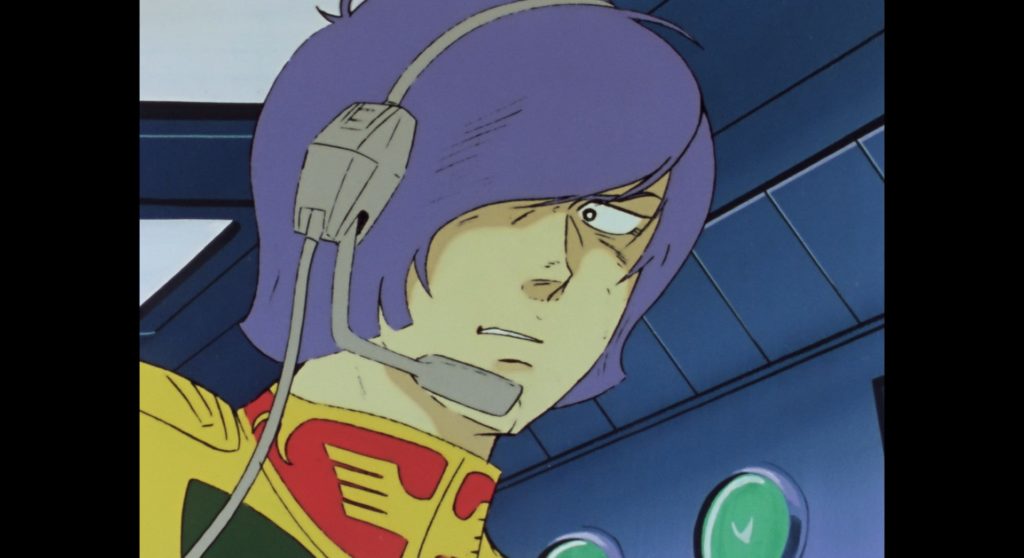
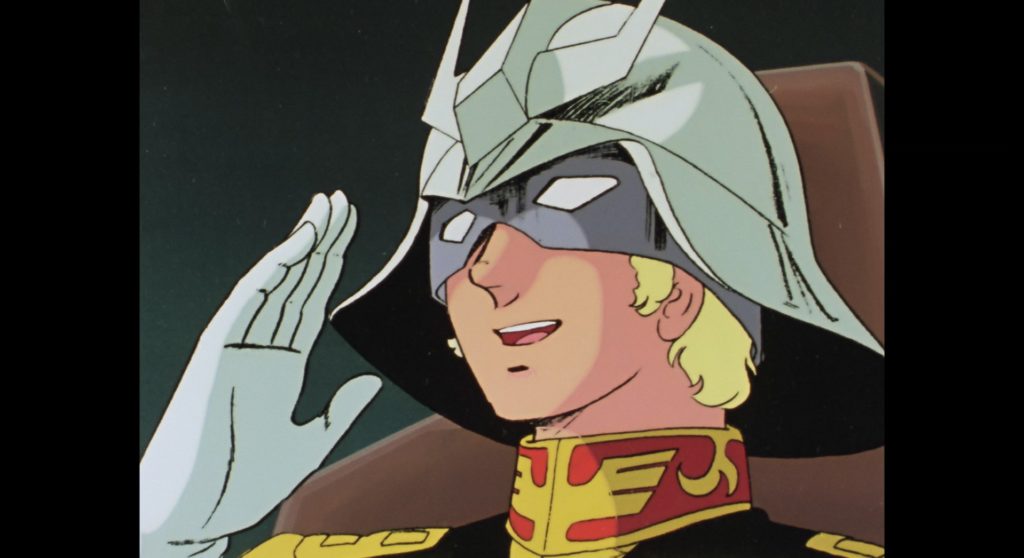
Another interesting point Ikeda brings up is how while Amuro and Kamille are the main face of First and Zeta, they are often at the mercy of reacting to the situations they are thrown into. By contrast, Char often plays the role of the story’s “trigger”, the character who creates the situations by having an active attitude towards the world.
Now my personal favorite section of this chapter, why Ikeda thinks Char is so cool.
To Ikeda, Char’s coolness comes from the fact that he is always “fighting with himself”. He’s fighting Amuro, the Federation Forces, and the Zabi family, but the most formidable enemy is himself.
Char is a half-hearted existence, both as a new type and as an old type. In other words, like an intermediate existence between “a person who can think digitally and a person who can only think analogously.”
Ikeda: Everyone has their own war of independence within themselves. Beyond the battle with Amuro and the Zabi family, Char sees the battle with himself. A man who casually takes on a lot of things and challenges his own battles, that’s why Char is cool.
Compared to a character like Amuro, who is designed to be relatable to the audience, Ikeda believes Char should be higher up, “someone out of reach”. He uses the line “Because he was a spoiled kid” from episode 12 as an example.
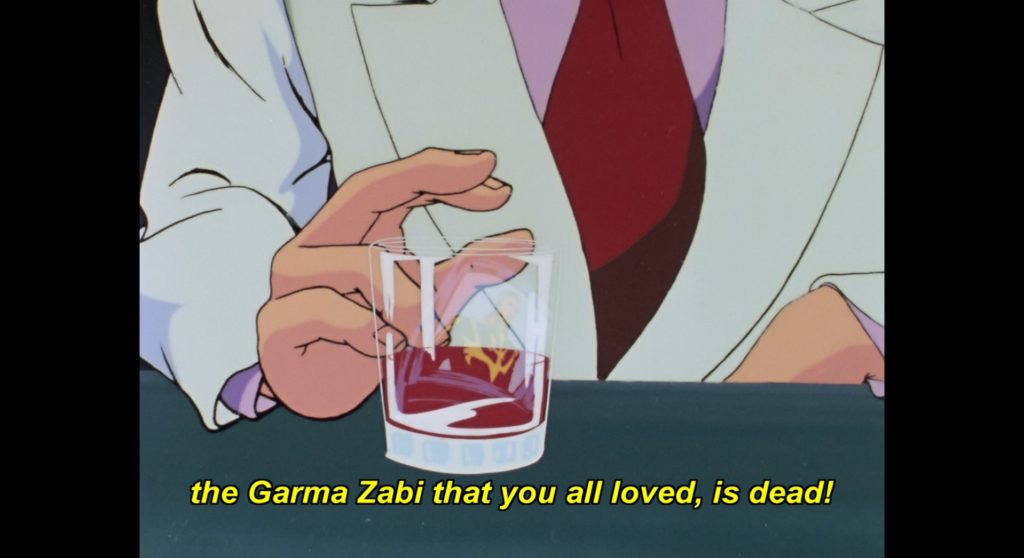
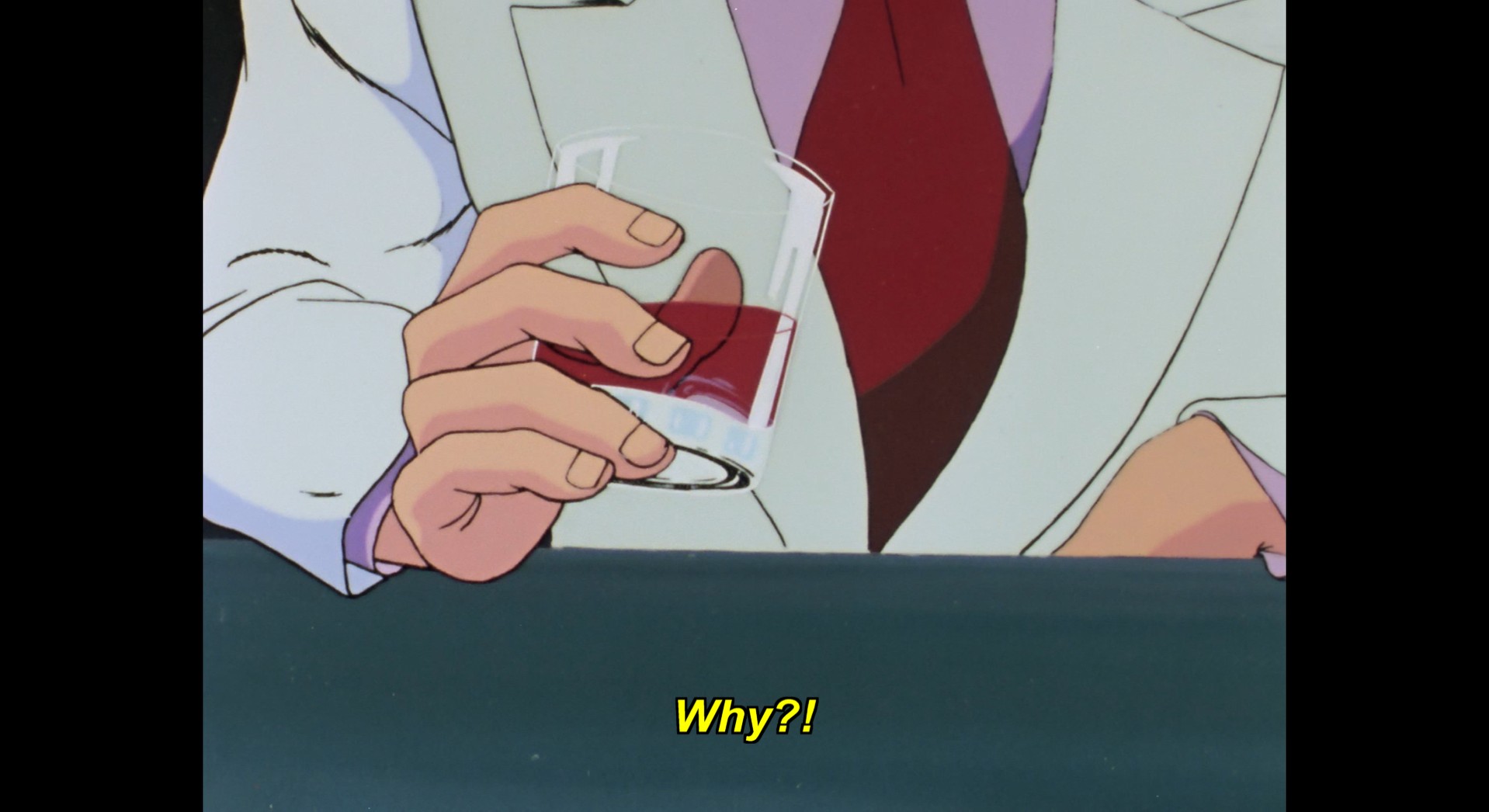
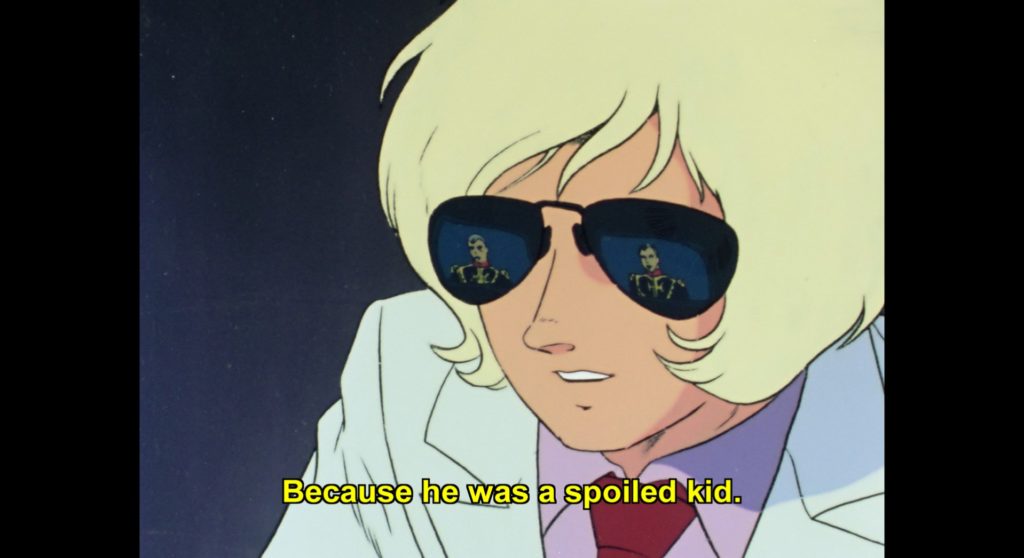
Ikeda: If I had been a seasoned voice actor, I would have been too shy to say the famous line. I guess I was able to do it because it was my first time as a regular in an anime, surrounded by people I didn’t know, and in a tense atmosphere where no one said, “That’s a smug line.”
Even so, there is a moment where Char’s demeanor begins to change in the final episode, when he asks Lalah what he should do. It’s a pivotal moment where the viewer sees this human side of him for the first time. Char has questioned himself before this moment, but he has never asked a specific person such a thing.
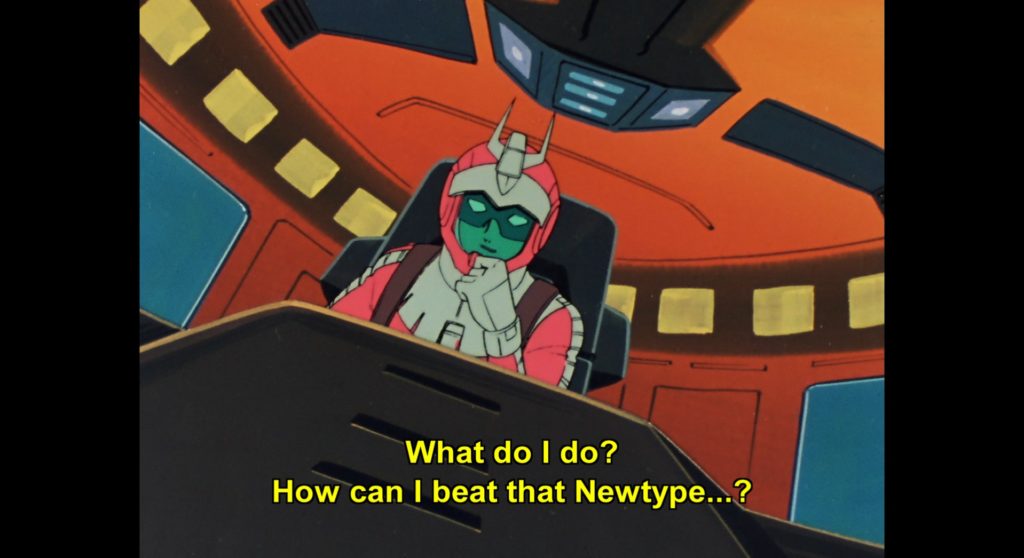
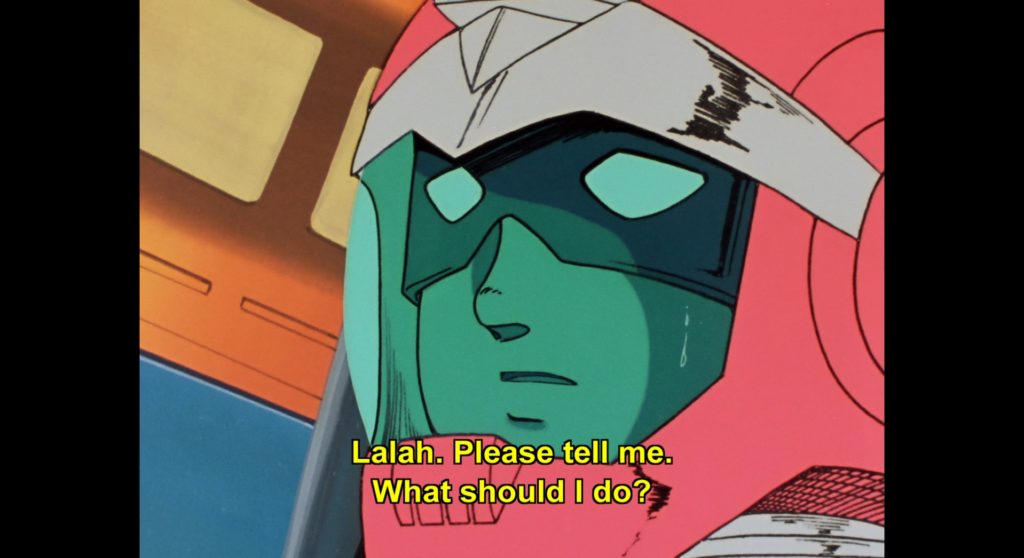
Ikeda: So, at the very end, Char’s weakness and frustration as he prayed to Lalah in order to win against Amuro became the key to a deeper understanding of Char for me as an actor.
Finally, Ikeda addresses the question, “do you have any tips for playing Char?”
Ikeda: I answer, “There is no such thing.” If I had to say it, it would be “do nothing”.
Ikeda: I have already played him for 30 years, so I have “Char Aznable” in my back pocket for sure. So I always feel Char’s presence, and although it may be annoying to him, I believe that he and I are one and the same. Hence, I must always be at 100% or more when playing him.
“Come on, you can do better than that, can’t you? Why don’t you ask to try one more time?”
Ikeda: I feel as if he is telling me to do it. Playing Char has always been a big hurdle for me. Even so, when I play Char, I always feel at ease. It feels like you are having a drink with an old friend, and you feel very relaxed.
Ikeda: For me, Char was both my partner and my teacher as a voice actor.
